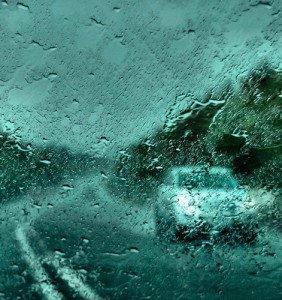by Lois Tverberg
In Psalm 24:1 it says that “The earth is the Lord’s and the fullness thereof” and the rabbis of Jesus’ day and earlier decided that everything that we enjoy in life should cause us to bless God. In the Mishnah, the record of rabbinic thought from before Jesus’ time until about 200 AD, the first book is devoted entirely to blessings.
In the most ordinary things they found ways of praising God, and these blessings have God at their center. They contain no personal pronouns — focusing utterly on him, and not on the person praying. They are simply statements that praise God for his goodness.
A person was supposed to devote his first thoughts upon waking to praising God once again for each part of his body that was functioning. The very first thing that would have woken them up was probably a rooster’s crow. So in the first century they would have said, “Blessed is he who has given to the cock understanding to distinguish between day and night!”
When they opened their eyes they said, “Blessed is he who opens the eyes of the blind!” When they dressed they said, “Blessed is he who clothes the naked!” They also said this when they put on a new piece of clothing.
 In their experience of nature they also blessed God. When the first flowers were seen on the trees in the spring, they said, “Blessed is he who did not omit anything from the world, and created within it good creations and good trees for people to enjoy!” After a long, cold winter, who isn’t happy to see these little signs of new life?
In their experience of nature they also blessed God. When the first flowers were seen on the trees in the spring, they said, “Blessed is he who did not omit anything from the world, and created within it good creations and good trees for people to enjoy!” After a long, cold winter, who isn’t happy to see these little signs of new life?
When they heard thunder or an earthquake that inspired fear, they also blessed God by saying, “Blessed is he whose strength and power fill the world!” Next time there is a windstorm, step outside and remind yourself of God’s amazing power.
When it rained, they said, “Blessed is he who is good, and gives good things!“I thought this was very odd at first, since rainy days are bad days to us. But in Israel where water is greatly needed, rain is source of joy. When you think about it, our abundant food here also is dependent on the rain that we always complain about.
 I have since realized that every time I complain about the weather, it’s a way of convincing myself that yet another day has come when God wasn’t faithful and that he decided not to care about me. It’s a minor habit to change, but my outlook on life improved when I stopped finding something to grumble at God for every time I stepped outside.
I have since realized that every time I complain about the weather, it’s a way of convincing myself that yet another day has come when God wasn’t faithful and that he decided not to care about me. It’s a minor habit to change, but my outlook on life improved when I stopped finding something to grumble at God for every time I stepped outside.
Blessings for Life’s Seasons
They had blessings for the highs and lows in life as well. When they went through a long, difficult time and finally had relief, or celebrated some happy event for which they waited, they said, “Blessed is he who has allowed us to live, and sustained us and enabled us to reach this day.” When a son returned home from war, or when a baby was born, or some other wonderful thing, they uttered this prayer to praise God for bringing them to that point in their lives.
Even in times of grief, when someone died or they heard tragic news, they blessed God. They said, “Blessed is he who is the true judge.” It was a reminder that God was still good, even when they heard about tragic events, and that he will ultimately bring justice even where justice can’t seem to be found.
Remembering God’s Kindness
It’s easy to start worrying that God is not in control, and not remember his continual faithfulness that sustains every minute of the day. In Psalm 103, David shares the secret for how to keep God’s loving care on your mind:
Bless the LORD, O my soul;
and all that is within me, bless his holy name!
Bless the LORD, O my soul, and forget not all his benefits,
who forgives all your iniquity, who heals all your diseases,
who redeems your life from the Pit,
who crowns you with steadfast love and mercy,
who satisfies you with good as long as you live
so that your youth is renewed like the eagles.
(Psalm 103:1-5, RSV)
~~~~~
 For more about this rich practice of prayer, see the chapter “For Everything a Blessing” in Sitting at the Feet of Rabbi Jesus.
For more about this rich practice of prayer, see the chapter “For Everything a Blessing” in Sitting at the Feet of Rabbi Jesus.
(Images courtesy of lovestruck and martin labar at flickr.com.)

